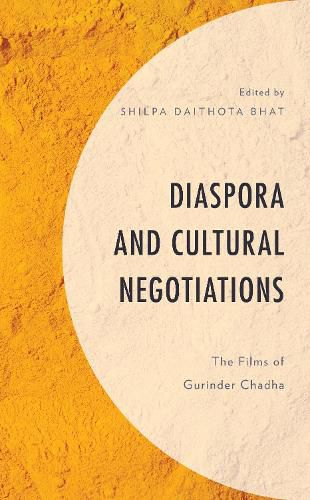Readings Newsletter
Become a Readings Member to make your shopping experience even easier.
Sign in or sign up for free!
You’re not far away from qualifying for FREE standard shipping within Australia
You’ve qualified for FREE standard shipping within Australia
The cart is loading…






Diaspora and Cultural Negotiations: The Films of Gurinder Chadha explores critical and theoretical conceptualizations of identity, globalization, intersectionality, and diaspora, among other topics, in the films of Gurinder Chadha. This book argues that Chadha’s work offers relevant and sensitive portrayals of the members of the diaspora community that make these films of contemporary and enduring value, highlighting their challenges in hybridization and acculturation in the societies they migrate to and the historical and political exigencies that influence their everyday existence. Contributors analyze Chadha’s films in the context of cultural milieus including multiculturalism, narration and representation, ethnicity, literary adaptation, and intercultural negotiations, while also exploring Chadha’s own role as an auteur. Scholars of film studies, Indian cinema, diaspora studies, sociology, and cultural studies will find this book particularly useful.
$9.00 standard shipping within Australia
FREE standard shipping within Australia for orders over $100.00
Express & International shipping calculated at checkout
Diaspora and Cultural Negotiations: The Films of Gurinder Chadha explores critical and theoretical conceptualizations of identity, globalization, intersectionality, and diaspora, among other topics, in the films of Gurinder Chadha. This book argues that Chadha’s work offers relevant and sensitive portrayals of the members of the diaspora community that make these films of contemporary and enduring value, highlighting their challenges in hybridization and acculturation in the societies they migrate to and the historical and political exigencies that influence their everyday existence. Contributors analyze Chadha’s films in the context of cultural milieus including multiculturalism, narration and representation, ethnicity, literary adaptation, and intercultural negotiations, while also exploring Chadha’s own role as an auteur. Scholars of film studies, Indian cinema, diaspora studies, sociology, and cultural studies will find this book particularly useful.